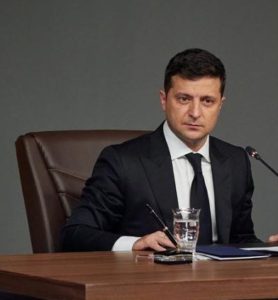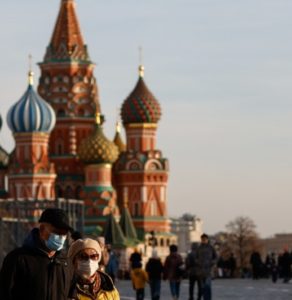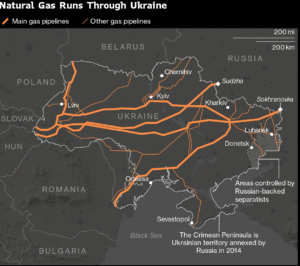Podcast: Play in new window | Download
Russia, Deescalation And War Crimes
The Nuremberg tribunal called aggression “the supreme international crime” because it contains within it all other crimes. German Nazi leaders were tried, convicted, and hung at Nuremberg for the German war of aggression they began in September of 1939 when they invaded Poland and started World War II.
The guilty verdicts at Nuremberg were not merely “victors’ justice.” Its precepts were incorporated into the UN Charter. The Charter, which is a treaty ratified by the countries of the world, established a process for keeping the peace and “to save succeeding generations from the scourge of war.” War is outlawed with the only exception being self-defense after an armed attack or with the permission of the Security Council.
Russia is guilty of aggression against Ukraine. But that being said, the United States has baited the Russian bear repeatedly, starting in 1990 with the breakup of the Soviet Union. At that time, US Secretary of State James Baker promised the Russian leader Mikhail Gorbachev that the US-led NATO organization would not move “one inch” east towards Russia. This promise was broken.
The Russians were betrayed.
Since then, NATO has recruited 11 former Soviet bloc and Warsaw Pact countries into its military organization. Led by the United States, NATO is an organization has played an aggressive role, having carried out the bombings of Serbia, Iraq, Syria, Somalia, and Libya.
NATO has placed missiles in Poland within 100 miles of the Russian border. Missiles on the long border between Ukraine and Russia could hit Moscow in 10 minutes making it impossible for Russia to defend itself. Russia’s attempts to make United States understand that they have crossed a red line has been consistently rejected.
This is not to defend Russia’s actions but to place them in historical context. The world now has come to the edge of an abyss. A nuclear war could easily be started, annihilating all of humanity. The rule of law must be restored.
Russia must honor a cease-fire and withdraw. The United States must forswear arming Ukraine and recruiting the Ukraine into NATO. Ukraine must go forward as a neutral country like Austria or Finland.
Guest – Peter Kuznick is a professor of history at American University and directs the Nuclear Studies Program. at that institution. Peter and Oliver Stone wrote The Untold History of the United States and also produced a showtime documentary series based on the book.
—-
Ukraine Invasion Economic Analysis
Horrific images of the war in Ukraine and the now more than 2 million displaced persons streaming over Ukraine’s border continue to emerge. Ukrainian President Volodymyr Zelensky is calling for a no-fly-zone over Ukraine and the corporate media is hyping more punishing sanctions against Russia.
So far, Joe Biden has resisted calls for a no-fly-zone, apparently mindful that enforcing a no-fly-zone would mean the US Air Force shooting down Russian planes and bombing Russian ground installations that provide Russian forces with anti-aircraft support. That could well devolve into a nuclear confrontation.
The United States and other Western countries have imposed sanctions against Russia, including expelling some Russian banks from the SWIFT financial messaging system, essentially barring them from international transactions and effectively blocking Russian exports and imports, as well as banning imports of Russian oil and gas. But these sanctions harm not the Russian oligarchs, but the Russian people while raising gas prices for people in the United States.
The prospect of cyberwarfare lurks in the background, which could redound to the detriment of people around the world, including those of us in the United States. Meanwhile, the U.S. and its allies continue to send massive armaments to Ukraine, to the delight of the huge military contractors.
While Russia’s full-scale invasion of Ukraine constitutes illegal aggression prohibited by the UN Charter, it is necessary to analyze the history and geopolitics as well as the role NATO has played in the region, in order to understand both the context for the conflict and how it could have been prevented.
Guest – Corinna Mullin, an organizer and professor of political science and political economy at the John Jay College of Criminal Justice and Brooklyn College-CUNY in New York. Corinna is also a member of the steering committee of the International People’s Tribunal on U.S. Imperialism: Sanctions, Blockades, and Economic Coercive Measures.
——————————




